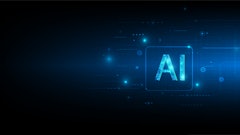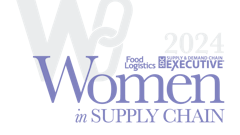
For years companies across the globe have tried with varying degrees of success to leverage enterprise resource planning (ERP) software and supply chain management systems to automate their supply chains, improve global operations and better manage inventory levels. Though these systems can bring enormous benefits, companies must take care to avoid a number of pitfalls when choosing, implementing and using them — especially in times of economic recovery.
Some of the challenges of ERP initiatives include finding the "right" software, implementing on-time and on-budget, and realizing all the business benefits expected from the technology. Not every company effectively accomplishes these things in the best of times, and a weak global economic environment further underscores these challenges.
Five Reasons ERP Must be More Effective
ERP systems can help a company forecast inventory needs to better match supply with demand and manage inventory costs. In today's turbulent economy, this benefit is particularly pronounced. During rosier economic times, companies may have been better able to deal with inefficiencies in their forecasting and inventory management processes. However, 2010 features leaner business environments with more limited resources. It is even more imperative for companies to leverage their ERP and other enterprise systems to help manage seemingly unpredictable supply chains.
Unfortunately, this unpredictability seems to be a trend. The Wall Street Journal recently featured an article about how companies are struggling to address the "bullwhip" effects of the economic recovery on their supply chains. The article highlighted organizations that are experiencing highly volatile swings in their supply chains and demand for their products rather than the slow and steady increase in production anticipated.
In light of this turbulence, companies should consider five key factors contributing to the need for more effective use of ERP systems to manage supply chains during the economic recovery:
Businesses are restocking inventory. As detailed in the WSJ article mentioned above, most companies burned off inventory during the last downturn in order to be leaner. Now companies are forced to restock their inventory levels. This movement is trickling throughout the entire supply chain; if a big company like Caterpillar decides to order a large quantity of material such as steel, this has a big impact on downstream suppliers throughout its supply chain.
The economic recovery is poised to be uneven. Most economic indicators suggest that this recovery will be choppy. In order to prosper — or even survive — during these upheavals, companies must anticipate changes in demand and manage their inventory accordingly. This is especially true for organizations with a multinational presence, as different regions of the world are emerging from the recession in very different ways.
Inventories are likely to be leaner in the foreseeable future. Because most businesses are still finding it difficult to access credit and are uncertain about the future, their inventories are being kept as lean as possible. As a result, even relatively small upticks in demand will likely challenge safety stock margins of error.
Headcount is not likely to increase in the near future. Most economists agree that unemployment rates will not ease until 2011, which suggests that companies are not going to be hiring to relieve their lean labor forces anytime soon. As a result, poor forecasting and supply chain management functionality in ERP systems is more likely to overlook early indicators of inventory/demand adjustment needs.
Managing receivables is more important than ever. For most businesses, the next best thing to cash is receivables. Although not directly related to supply chain management, robust financial and receivables management in an ERP system will help better finance inventory investment needs in the long-term.
Four ERP Differentiators to Consider
One of the key reasons many companies implement ERP and supply chain management software is because it provides more transparency to far-flung global operations. In today's evolving economy, it is even more critical for companies to effectively manage and adjust their supply chains to ensure rapid changes are met with rapid responses. ERP and supply chain management software can help, but there are a number of options on the market — and a number of differentiating factors between the leading enterprise software systems.
Following are four variables to consider during the evaluation process:
Robust demand planning and forecasting. Companies can have the most effective procurement and transportation processes in the world, but it doesn't matter if they aren't forecasting the right volume and timing of the product being purchased. Not all ERP or enterprise software solutions can handle complex planning and forecasting without some type of third-party bolt-on, so it is important to carefully evaluate the planning capabilities of any prospective software vendors.
Streamlined procurement processes. Most of our clients work with high volumes of contract manufacturers outside their home countries, which adds to the potential complexity and need for transparency in the procurement process. When evaluating potential software vendors, it is important to understand the ability to automatically create purchase orders based on projections, streamline the transmittal of orders to vendors, and access PO statuses in real-time.
Integrated transportation management and logistics. When outsourcing manufacturing overseas, it can be difficult to manage lead times and keep tabs on shipments. Whether your company's products are in containers on the water, in transit via a domestic freight carrier or sitting on the dock at your vendor's warehouse, it is critical to know exactly where products are at every point in the supply chain.
Advanced pick, pack and ship warehouse management system (WMS) functionality. Once the products are in the warehouse, it is important to have efficient processes to pick, pack and ship orders to your customers. Software solutions handle inventory management and order processing functions very differently, so it is vital to find the right fit for your warehouse management needs.
These four areas are incredibly important to evaluate as part of the software selection process as they tend to be key competitive advantages for successful companies and differentiators between potential supply chain management solutions. Bringing these factors to bear will help focus the evaluation process and ensure you hone in on the most important differentiators of your industry and your business.
Three Best Practices for an ERP Initiative
Once a company has chosen and purchased ERP software, it must incorporate best practices into the initiative to produce top results. Here are three tips towards achieving that goal:
Focus on measurable business improvements, efficiencies and non-value-added activities. Every company is different, and most companies have unique competitive advantages. Some are extremely customer-oriented, while others contain costs via efficient supply chain management processes. The key is to identify and measure both the areas that are most important to your business and the areas that will benefit the most from ERP. Once these have been detailed, it is easier to identify potential ERP systems that will provide more efficient or effective business processes to support your operations.
Leverage benchmarks and data to drive improvements. Exceptional third-party consultants will bring a broad view of the ERP space, keen insight into your industry vertical, supporting data and best practices from other clients to the table. Be leery of consultants or software vendors that have a one-size-fits-all, "canned" best-practice solution.
Standardize processes that aren't differentiators to your business. If something isn't providing a competitive advantage to your business (whether it's financials, accounts receivable or payable, fixed assets or warehouse management), then chances are that most ERP solutions have standardized functionality to provide proven efficiencies. If a particular business function is competitive or unique to your business, however, it is less likely that ERP software vendors will provide standardized best practices and less likely that your company would want to leverage generic functionality used by other companies. Examples of areas that are differentiators and more difficult to find in most ERP packages include product configuration, process manufacturing and vendor managed inventory.
In conclusion, there is no question that finding, implementing and managing the correct ERP solution for your business and supply chain needs is of vital importance in today's rocky economic climate. Of course, this is easier said than done, but you don't have to "go it alone." Remember that third-party organizations like my firm, Panorama Consulting Group, offer a number of services to help your company at any stage during the ERP process and ensure that you continue to compete at the highest level possible.
About the Author: Eric Kimberling is founder and president of Panorama Consulting Group, a Denver consulting firm with expertise in ERP software selection, ERP implementations and organizational change management. More information at www.panorama-consulting.com.

























